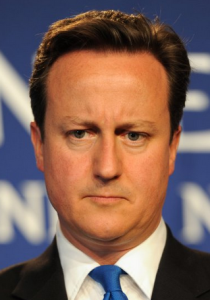 I’ve previously written about how the UK is absent from the EU’s Presidential Election (otherwise known as the top candidate, or Spitzenkandidat process), and while the essential content of that earlier post remains valid, I have reflected further about the implications for UK-EU relations from this process, and cannot see how the whole game this summer can play out in David Cameron’s favour and, if played badly, could result in a major UK-EU spat.
I’ve previously written about how the UK is absent from the EU’s Presidential Election (otherwise known as the top candidate, or Spitzenkandidat process), and while the essential content of that earlier post remains valid, I have reflected further about the implications for UK-EU relations from this process, and cannot see how the whole game this summer can play out in David Cameron’s favour and, if played badly, could result in a major UK-EU spat.
The starting point is the process (summarised here) – the Commission President needs a Qualified Majority Vote in favour of his/her nomination in the European Council. This means that no country has a veto over who the Commission President should be. This seems to have been (wilfully?) ignored by people like Daniel Hamilton from the Tories – this debate on Twitter is illustrative. Hence as I see it the UK has to make a positive case for the candidate it wants, rather than try to throw around its weight to stop a candidate it does not like.
Tie this to the Spitzenkandidat process and Cameron has a problem on his hands.
This problem is most acute if the S&D group emerges as the largest after the EP elections and tries to force through Martin Schulz as Commission President. Countries like France and Germany, already invested in the process to a certain extent, could live with this (even Merkel I think, who apparently gets on quite well with Schulz). Yet even the Labour Party in the UK has problems with Schulz and refused to back him – I hence cannot see how Cameron could be anything other than against his nomination as Commission President. “We will have to work with him” is going to be about the best Cameron would be able to muster in such a situation, and the words his backbenchers will use will be more fragrant than that I think.
The situation if the centre right wins the EP elections would be only slightly easier. As the Conservatives have left the European People’s Party they have very little leverage there, and the EPP’s candidate – old style, quasi-federalist, Euro-integrationalist Jean Claude Juncker is not the sort of Lagarde or Katainen style candidate that Cameron would more easily be able to live with. Indeed EUObserver reports that Juncker is a no-go for Cameron. Here too Merkel’s position could be at odds with the UK’s position – her CDU were Juncker’s most prominent backers.
Now I personally have my doubts about the extent to which the EPP will back Juncker when push comes to shove, and indeed on the left rumours that Schulz could be replaced by Helle Thorning-Schmidt continue to abound. But having said that the two most likely candidates for Commission President – Schulz and Juncker – remain unpalatable to the UK, yet the process grants Cameron very little power to do anything.
Could this be the next UK-EU crisis to happen?








Lets hope they can coordinate their policy better with Putin than they could with Hitler
This just demonstrates that Britain is, as it always has been, a second or third class member paying a first class subscription. First the Élysée treaty ensured that France and Germany coordinated their positions in advance of every meeting. Now the euro zone countries are forming their own single economic government ( with a permanent majority of votes) we are even less relevant to the real decisions. We are only required as a payer, not a player. Time to recognise that we are not and never will be “at the heart of Europe” as Mr Major so strangely wished.
Do wee really care? who ever it is has by definition to be pro European Union so as a nation we wont get on with whoever it is & if they leave us alone & stop pushing us into a union we dont want I’m sure we will sit back & let the game play out.